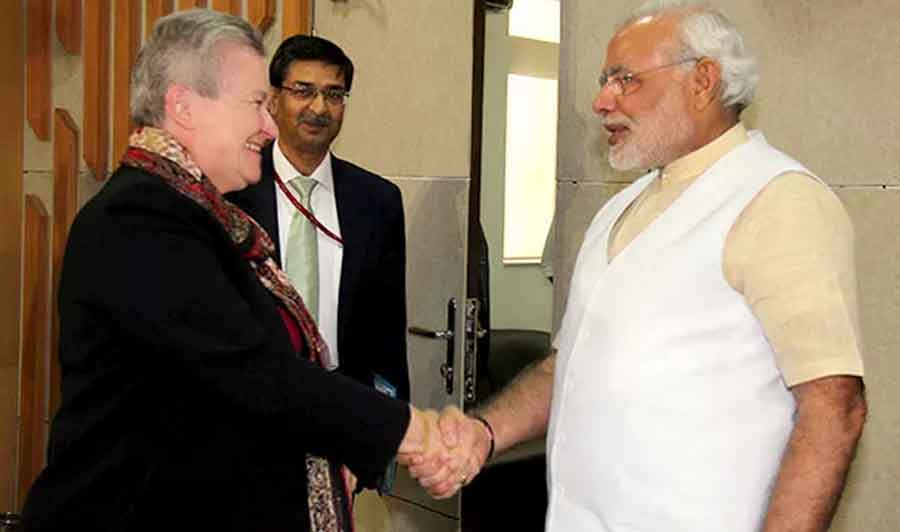US diplomacy is a cynical mixture of principle and expediency. The world’s foremost power needs to project internationally that its policies are based on certain high principles so that its global hegemony is not seen as resting on raw power alone but has a moral basis. Hence its crusade for democracy, rule of law, human rights and individual enterprise, on which rests its “soft power”. Juggling moral posturing and hard-headed pursuit of national interest often lands the US into contradictions from which opportunism is the only way out.
If despite sustained enquiries, police investigations and court proceedings Modi has not been found guilty of the acts of commission and omission imputed to him in the 2002 riots, why has the US treated him as a political pariah for the last 8 years?
An immediate illustration of this is the US decision to reach out to Narendra Modi. Since 2005 Modi is not eligible for a US visa under its domestic law for “severe violation of religious freedom”. For the US to unilaterally hold Modi guilty of violating religious freedom, without the Indian legal system concluding that smacks of the usual US imperiousness. The Europeans ended their boycott of Modi months ago, but the US has stubbornly refused to do so until now. If the UK with its respect for rule of law, its large population of Indian origin and conflicting pressures from diverse India-connected lobbies could see the absurdity of ostracising Modi despite the latter being wrung through domestic political and legal processes without proof of guilt, the US has obviously believed their superior legal and moral bench-marks precluded equally sane thinking.
Now that Modi appears to be coasting towards political success in the coming elections, the US ambassador has received the green light to engage him. If the US believes in the democratic process legitimising a political leader, why has it disregarded the fact that Modi has won two legislative elections after 2002? If despite sustained enquiries, police investigations and court proceedings Modi has not been found guilty of the acts of commission and omission imputed to him in the 2002 riots, why has the US treated him as a political pariah for the last 8 years? So much for US championship of democracy and the rule of law internationally.
The US obstinacy on Modi has also constituted an interference in India’s internal political affairs, as it took, in effect, sides in the bitter internal debate in India about his conduct during the Gujarat riots. Sections of our own political class have tried to exploit the visa denial as a moral indictment, if nothing else, of the Gujarat chief minister. That this class should judge a foreign government’s position on an internal matter more worthy than the political judgment rendered in elections in Gujarat and the legal outcome of our own investigative and judicial instances is unworthy in itself.
The US ambassador need not be rebuffed, but the political insult administered to Modi should not be overlooked easily or too soon.
The cold-shouldering of Modi also points to the distorting influence on US diplomacy of agenda-driven civil society and religious lobbies. The US Congress is especially vulnerable to them, and because of separation of powers in the US , the administration often acts erratically and arbitrarily under Congressional influence. This places a burden on the international system because the US extends the domestic pressures within its territory to its external relations, pushing others to subscribe to the US world view, its solutions to problems and often its laws.
Naturally, the US reach-out to Modi will be interpreted as signifying that the US now expects a change of government in Delhi and acknowledging his possible ascension to power. The US is belatedly trying to extricate itself from an untenable position; its step should not be given any undue importance as its political impact is highly marginal. Exaggerating its importance will only play into US hands, persuading the Americans that they can take objectionable decisions and retract from them at a moment of their choosing, without paying any price because they are too important to be ignored or penalised. The US ambassador need not be rebuffed, but the political insult administered to Modi should not be overlooked easily or too soon.
Courtesy: Economics Times






namaste kanwal ji, your posts and insights on world affairs are profound and practical. we need more peole like you to study world affairs and steer india in the right direction and make people aware of how countries and media use their propaganda machinery to the detriment of india politically, culturally and financially… vande maataram